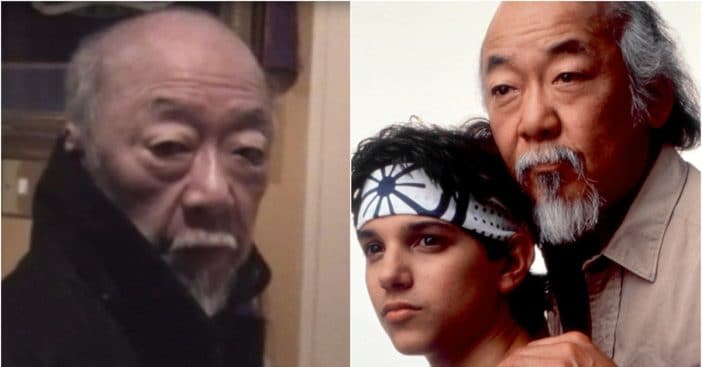
UPDATED 5/22/2024
If you were a fan of Happy Days, and let’s face it, so many of us were, then you certainly knew the owner of Arnold’s, the diner where Fonzie, Richie, and the rest of the gang would hang out. Arnold, of course, was played by Japanese-American actor Pat Morita, who mastered a broken English that kept everybody laughing. But let’s say you missed Happy Days. No doubt you saw or at least heard about him playing martial arts master Mr. Miyagi in the Ralph Macchio Karate Kid films, where he turned in a performance that was about as far-removed from Arnold as you could possibly get.
Two iconic roles that have touched several generations thanks to never-ending reruns of Happy Day as well as the Cobra Kai television series, which has paid tribute to Mr. Miyagi and therefore the man who brought him to life. Yet despite all of that, Pat Morita never recovered psychologically from a traumatic childhood that included spending seven of his first nine years suffering from tuberculosis, then being sent to a Japanese internment camp in the aftermath of the 1942 attack on Pearl Harbor. As if that wasn’t enough, in 1956 he witnessed his father being killed by a hit-and-run driver. Somehow, though, Pat kept it together well enough to create a successful standup comedy routine, appeared on numerous television shows, and played Arnold and Miyagi. But in the end, to find inner peace he turned to alcohol and gradually, tragically, succumbed to its draw.
RELATED: The Karate Kid Cast (1984) — Where Are They Now?
His story was recently told in the Kevin Derek documentary, More Than Miyagi: The Pat Morita Story, which is available for purchase on Blu-ray and DVD, and can be streamed on Prime Video, Vudu, redbox and Apple TV+.
Pat Morita Revealed
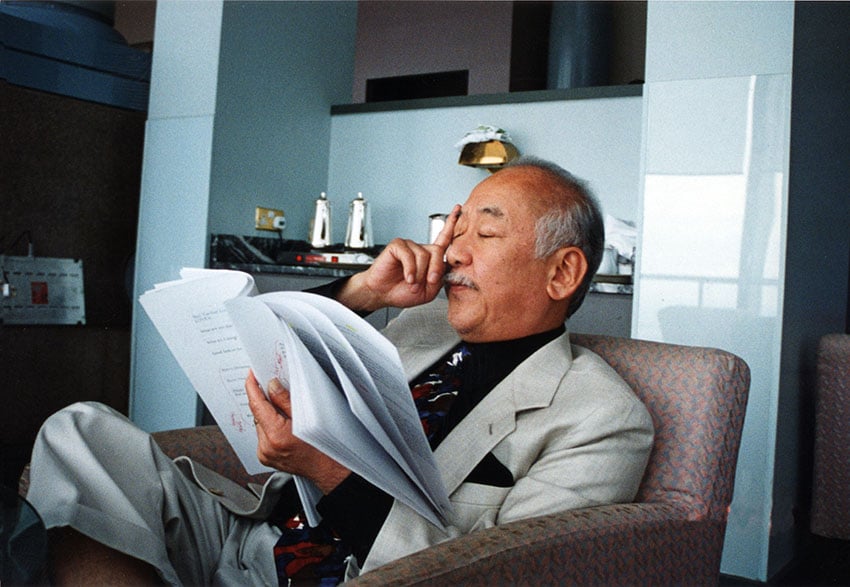
What’s amazing, and something that Kevin Derek realized as well, is that many people were not only unaware of Pat’s troubles, but the fact that he actually died back in 2005. “Even to this day,” he says, “I still get emails from people who hit me up on Instagram and ask, ‘Can you send a message to Pat?’ They don’t realize he passed away nearly 20 years ago.”
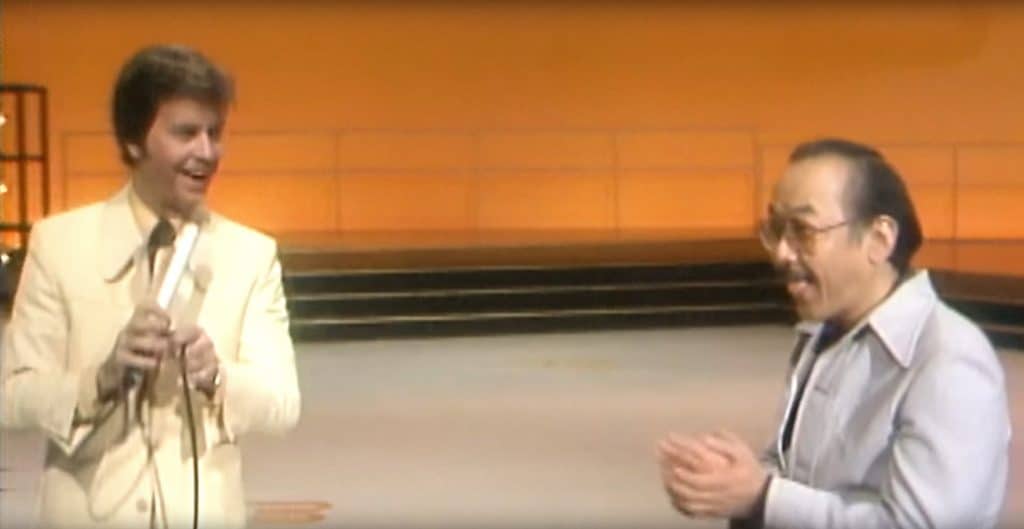
Watching More Than Miyagi, one comes away with a similar feeling to watching an episode of A&E’s Intervention: the frustrating notion that you’ve just witnessed a life that, in the end, was wasted; of someone who had so much, but squandered it away through addiction.
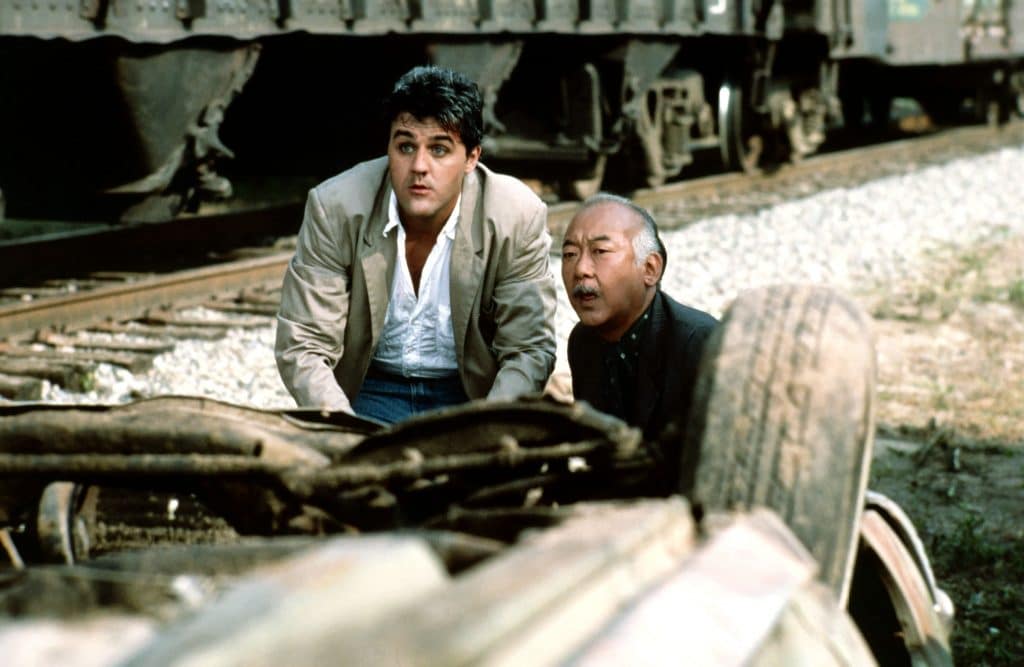
“At the same time,” Kevin counters, “it’s understandable given all the stuff that he suffered — the illness, internment camp, his father dying in front of his eyes. What I look to is that despite all that, he accomplished so much. Especially for a Japanese man at the time. He was the first Asian person to do a stand up comedy act, and it was uncommon for a Japanese man to pursue an acting career. It was usually a doctor, lawyer or engineer — occupations like that.”
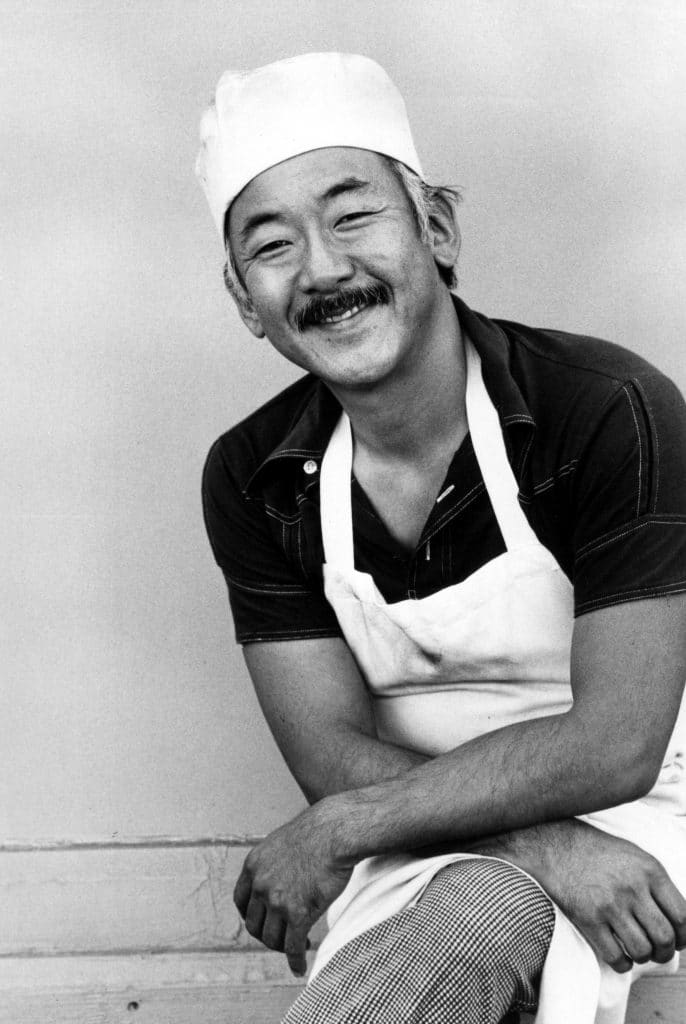
Noriyuki “Pat” Morita was born June 28, 1932, in Isleton, California. Married and with a child, in 1960 he began working as a data processor for a number of operations, but feeling burned out, he began performing standup at small clubs in Sacramento and San Francisco under the name Pat Morita. Moving to Los Angeles, he managed some success and then began appearing in small roles in feature films and making television guest-starring appearances on series like Green Acres, The Odd Couple, M*A*S*H (in a rare dramatic performance), and a recurring part on Sanford and Son. He was Arnold on Happy Days for several seasons until he left to star in his own short-lived series, Mr. T and Tina.
Mr. Miyagi Enters His Life
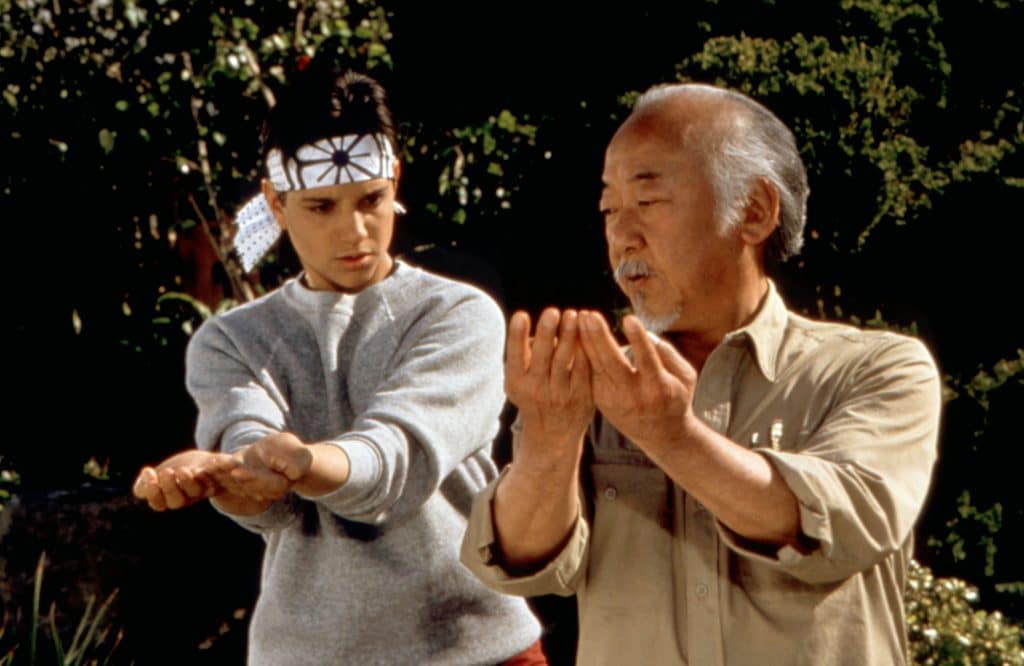
In 1984 he played Mr. Miyagi for the first time in The Karate Kid, for which he was nominated for the Academy Award in the category of Best Supporting Actor. He reprised the role in The Karate Kid Part II (1986), The Karate Kid Part III (1989), and 1994’s The Next Karate Kid (now training Hilary Swank). After that, he continued acting, but his struggle with drinking grew more intense and began costing him roles to the point where he was becoming unemployable.
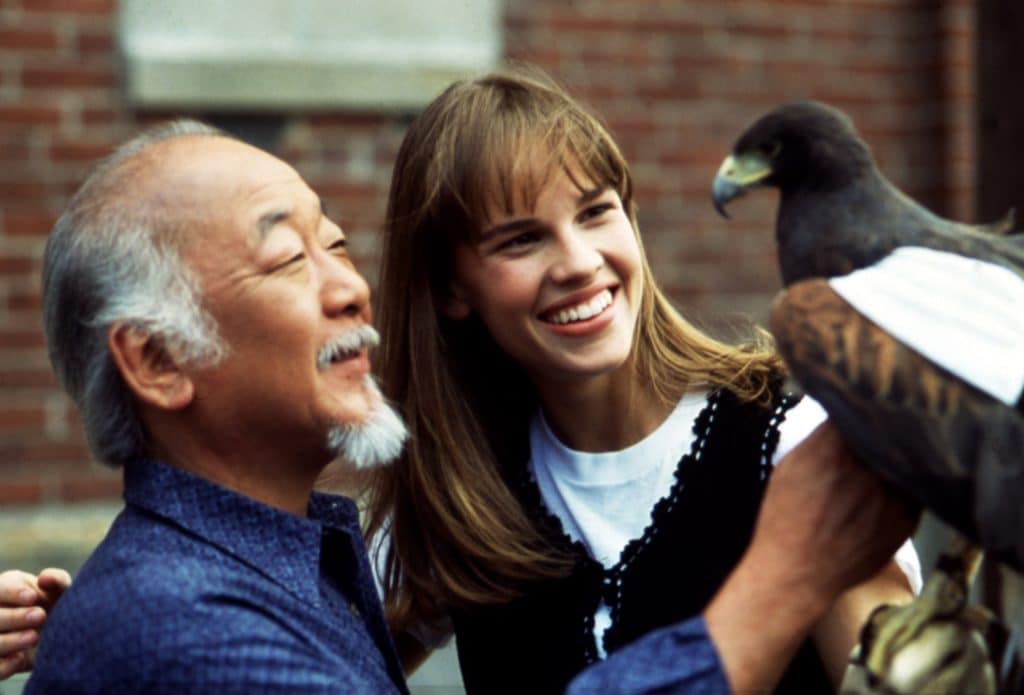
“The turning point for him, I think, is when he reached the age of 60 and above,” muses Kevin. “When you’re an aging Asian actor, you get kind of pigeonholed into doing the character that you’re known for. I think that happens a lot; you just get recognized as this one character and he ended up just doing Master This, Master That, and there was a point in his life that he wasn’t getting any roles, because he was older and kept drinking and starting stumbling and doing a whole bunch of silly things. And at that point you get blacklisted in Hollywood where the word starts to spread that you shouldn’t hire this guy. And when things got bad for him, he began to drink more than he normally did and he just went down from there. I don’t think he ever really found himself.”
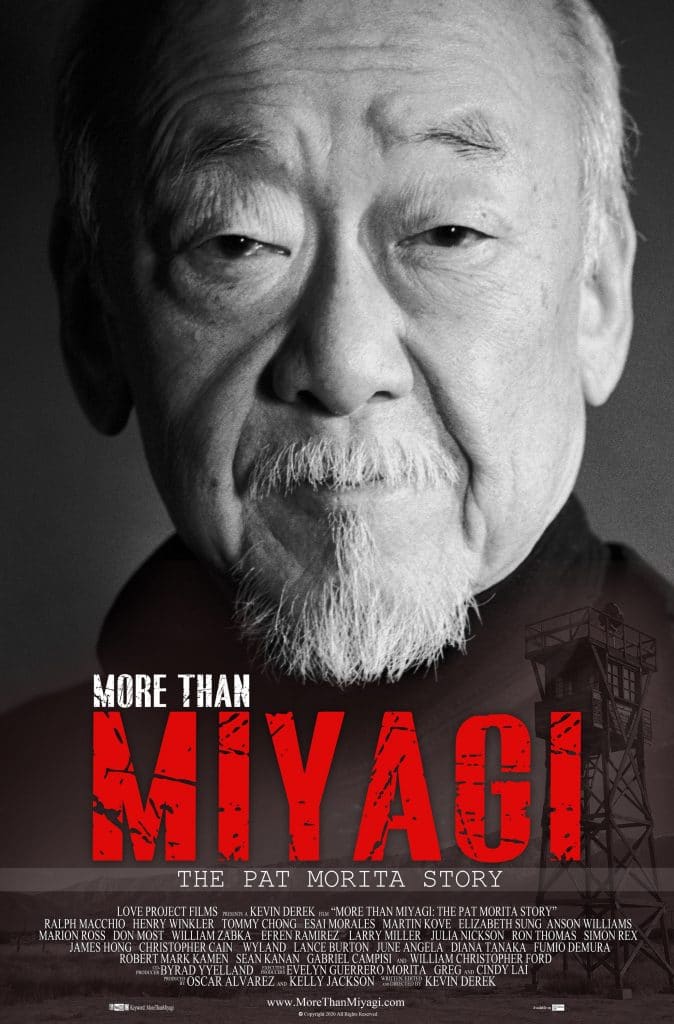
One point he makes is that when Pat first played Miyagi, and before he found himself typecast, he actually felt pride and fulfillment. “I have to imagine that that really had a powerful impact on him,” Kevin suggests, “because he became a genuine role model. I mean, Arnold was a silly little man we could laugh with, but there was something just a little more profound about Miyagi. It was a character that everyone could relate to, because everyone needs a mentor in their real life that willingly teaches you the ways. The downside, of course, was that there’s the cliché that Asians know martial arts, so even though it was a positive role, there was still this negative connotation. You know, it’s, like, ‘There’s an Asian. He’s a martial artist.’ But Pat was able to pull it off.”
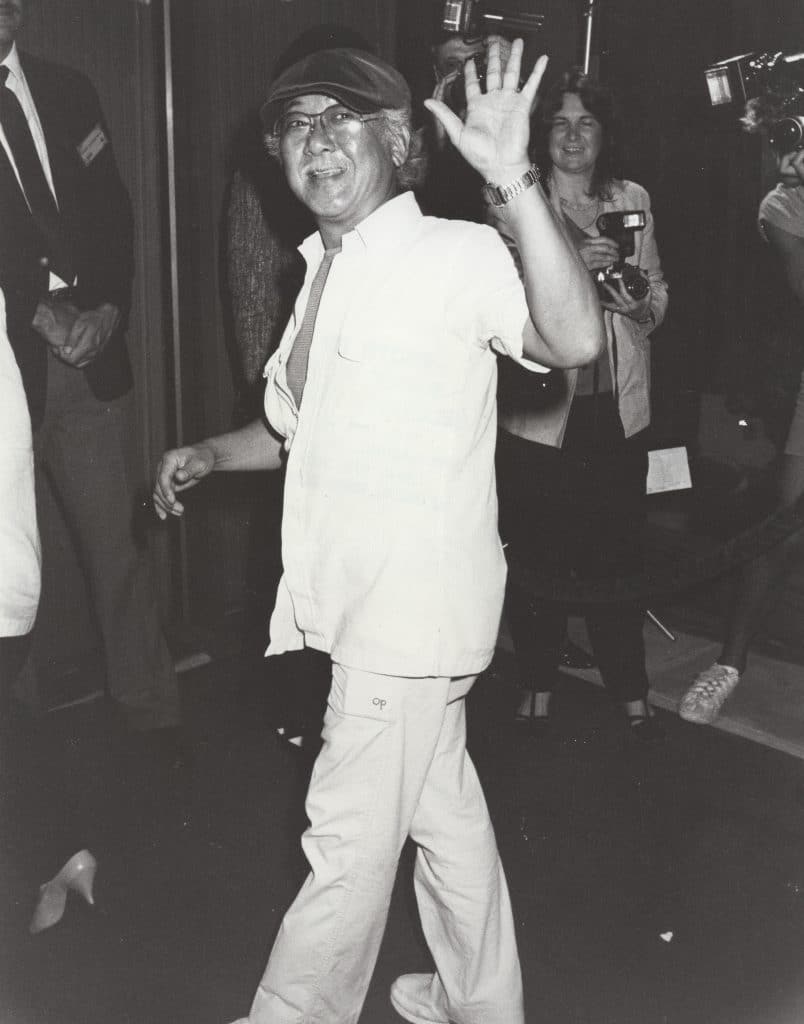
Pat, who was married three times and was the father of three, in 2005 was suffering from a urinary tract and gallbladder infection that led to kidney failure, and he died on November 24. But now he lives on, not only through his body of work but this documentary, which is largely narrated by Pat himself, thanks to an in-depth interview he gave to the Archive of American Television.
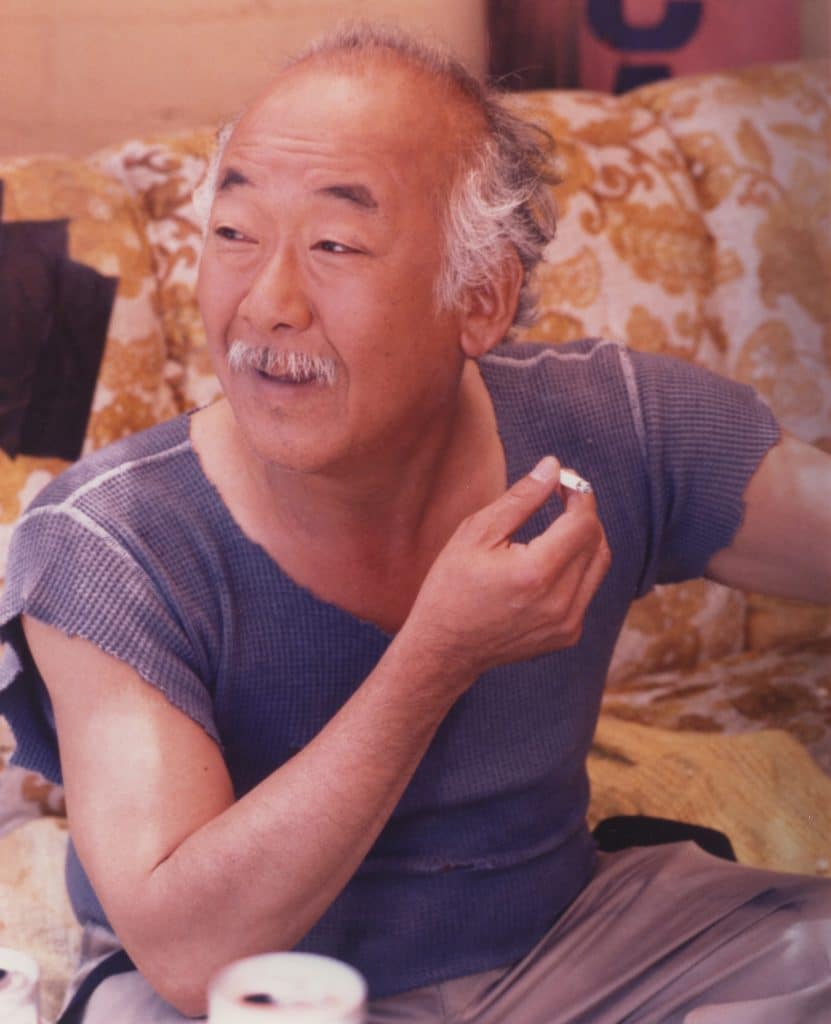
“I hope that people watching the documentary will realize what a genuine, nice person Pat was,” he notes. “With all the demons he had, and what he suffered and went through, he was able to rise from all of that stuff and create one of the most iconic screen characters ever. What’s funny is that in the beginning, I thought the people who would be interested in him would be in their fifties and sixties. But from what I’m seeing, the age is all over the place and I think of that has to do with Cobra Kai. Now there are people who are teens and in their twenties who are interested in him, too. And that’s just great. With the documentary, I accomplished what I set out to do.”
Let’s revisit those happy, Happy Days! 🙂
For more of these throwback videos, check out our YouTube Channel!
